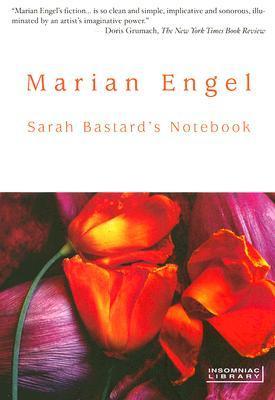To attempt to comment on this novel written in the ‘60’s by a revered Canadian feminist is bound to get a guy in trouble. I noticed that there were no other Goodreads reviews for this book even though its star ratings ranged from 4 – 1. Perhaps no one wants to risk controversy. So let me step out boldly, or foolishly; to observe objectively, or “put my foot in it,” as they say.
Sarah Porlock (re-christened Bastard by herself,) is a confused academic who looks down on all things Canadian: its cities, its education system, its literature, and its way of life. The ‘60’s must have been a pretty shabby period in Toronto the Good, especially for an educated woman coming of age and wanting to embrace her own destiny. Sarah is single but secretly wrestles with the question of whether it would be better to be married like her sisters and be “normal”; but normal is to capitulate, so she wears her rebelliousness like a badge of courage, her way of standing out in the crowd. Her lovers are borrowed husbands, including, at least, one of her sisters’ spouses; the other brothers-in-law are intellectually and emotionally in her crosshairs too, but as Sarah is not overtly descriptive of sex, despite her liberated status, we will never know if they were ever romantically ensnared with her as well.
A trip to Europe with a lover (another borrowed husband, Joe) and a resulting fling with brother- in-law, Sandro, enlightens her. She returns to Canada determined to quit her job and emigrate to...to where exactly we do not know. She believes that “edgy” and “creative” lies in Europe, and “smug” belongs to Canada. So, while her older, married and “smug” sisters remain in Canada, Sarah needs to break free. A series of farewell parties and farewell scenes ensue, with Sarah saying goodbye to everyone and every haunt in Toronto, while her family and colleagues implore her to stay and appreciate the bounty of her homeland. She finally makes it as far as Montreal and we will never know whether this idealistic, multi-generational Canadian flower-child from the privileged side of the tracks, bestowed with a good education, good connections and a cradle-to-grave support structure, ever left Canada’s shores.
I find in reading these stream of consciousness novels that ramble all over the place, one is best served by not trying to figure out the story-line but to let it emerge, patchy and sketchy, as one enjoys the incisive writing instead; and the writing is fresh and cutting. Sarah, the first person narrator, is an unsympathetic character, ridden with sibling envy, uncommitted, undependable, selfish, and with premonitions of an early death (not unlike the author’s, who died at 52). Sandro describes her best: “Sarah still lives in a dream. And she does not know yet what she wants to be. Unless she marries, she will stay a child.” If there was to be a sequel, I hope Sarah finally grows up and remains in Canada, because as we all know, “the grass ain’t greener....” I am not sure how autobiographical this novel is, but from the afterword we understand that the author was also an academic in those dastardly ‘60’s, but she married, travelled the world, raised children, returned to Canada and made a great contribution to Canadian letters. Perhaps, Sarah was only an earlier iteration of the author’s life, if at all.
This novel opens a window on the inferiority complex under which our best and brightest in Canada seemed to live in the ‘60’s. Perhaps Sarah Bastard is an example of the first attempts to break free of this stranglehold. Yet, given that she never made it past Quebec, it makes one wonder, whether this was an early half-assed attempt at best, like Flower Power and Occupy Wall Street, and whether the real breakthrough from the colonial yoke came a generation later?

